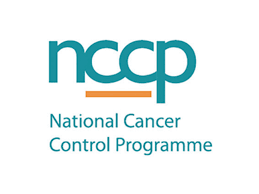The Coordinator of the National Cancer Control Programme (NCCP) at the Ministry of Health and Social Welfare, Dr Uche Nwokwu has warned that men with larger breasts are at a higher risk of developing breast cancer.
Nwokwu made this statement, yesterday, in an interview in Abuja. He also highlighted that men undergoing hormone therapy to alter their body physiology to appear more feminine face an elevated risk of developing the disease.
Explaining that men have breast tissue, Nwokwu noted that they could develop breast cancer, although it remains a rare condition. He confirmed that cases of male breast cancer had been recorded in Nigeria, stressing the importance of raising awareness about the issue.
He explained that breast development in men could be triggered by an increase in estrogen, the hormone responsible for breast growth, particularly when testosterone levels drop.
“The hormone that women have to develop their breasts is also present in men. The difference is that testosterone, which is higher in men, suppresses that hormone. So, when there’s an imbalance between the two, whichever is higher tends to manifest more,” Nwokwu said.
He added that when estrogen levels become dominant in men, it can result in gynecomastia, the enlargement of male breast tissue which in turn increases the risk of breast cancer. “Once there’s a fluctuation that disrupts the body’s ability to regulate the cell ducts, it can trigger breast cancer,” he explained.
Nwokwu further noted that the risk factors for breast cancer in men are similar to those in women, although women are more prone to the condition due to their more developed breast tissue and cell ducts.
He said that men with larger breasts are at a higher risk than those with average breast size, although no man is completely exempt. “The reason is simple: anything that lowers male hormones, whether due to sickness or environmental factors, can cause an increase in female hormones. That imbalance can result in gynecomastia and, by extension, raise the risk of breast cancer,” he said.
Genetics also plays a significant role, according to Nwokwu. He advised that individuals with a family history of breast cancer should be particularly cautious, as even minor environmental triggers can elevate their risk.
The coordinator also highlighted that men undergoing hormone therapy to transition to a female body structure are at an increased risk. “When men take hormone therapies to alter their physiology, the more active female hormones can expose them to a higher risk of breast cancer,” he explained.
Nwokwu also acknowledged that available data on male breast cancer is limited, partly because men often fail to recognise the symptoms until a proper diagnosis is made. He attributed the lack of conclusive data to a broader challenge in cancer data collection.
However, he reassured that the Federal Government had designated cancer as a reportable disease to improve data gathering. Efforts are also underway to enhance diagnostic capacity nationwide, enabling the accurate identification and diagnosis of any abnormalities in the body.
To reduce the risk of breast cancer, Nwokwu advised men to regularly check their bodies for lumps or unusual growths, especially in the breast area. “Any abnormal growth should be properly investigated.


